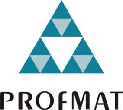Banca de DEFESA: ERIKSON DOS SANTOS FERREIRA
Uma banca de DEFESA de MESTRADO foi cadastrada pelo programa.STUDENT : ERIKSON DOS SANTOS FERREIRA
DATE: 06/10/2023
TIME: 09:00
LOCAL: REMOTO
TITLE:
CHALLENGES IN TEACHING MATHEMATICS USING GOOGLE MEET IN HIGH SCHOOLS IN WESTERN PARÁ CITIES
KEY WORDS:
Remote and Hybrid Teaching; Mathematics Education; Virtual Learning Environments; Virtual Learning Objects.
PAGES: 65
BIG AREA: Ciências Exatas e da Terra
AREA: Matemática
SUMMARY:
This study aims to understand the impact of the COVID-19 pandemic on the educational landscape, with a focus on the effectiveness of the Google Meet and Google Classroom platforms in the context of hybrid and remote teaching. To achieve this, an explanatory qualitative methodology was adopted, with data collection carried out exclusively through online questionnaires directed at high school teachers from both public and private schools in the Western Pará region. The theoretical framework is based on the National Common Curricular Base (BNCC) and the Theory of Cognitive Flexibility, encompassing contemporary studies on Information and Communication Technologies (ICTs), Virtual Learning Environments (VLEs), and Virtual Learning Objects (VLOs). The results indicate that both teachers and students have adapted to a culture of remote and hybrid teaching, in which Google Meet plays a crucial role in addressing the educational challenges posed by the pandemic. In the specific context of mathematics education, the study suggests that a deeper mastery of virtual learning environments can enhance pedagogical benefits.
COMMITTEE MEMBERS:
Interna - 1980961 - ANGELICA FRANCISCA DE ARAUJO
Interno - 1335625 - CLAUDIR OLIVEIRA
Interno - 2028748 - HAMILTON CUNHA DE CARVALHO
Externo à Instituição - RUDINEI ALVES DOS SANTOS - IFPA




